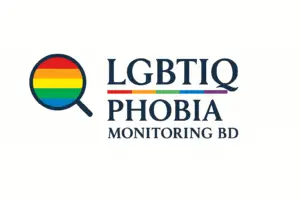UN Human Rights Mission to Open in Bangladesh Amid Right-Wing Protests
Dhaka, 19 July 2025
This week, Bangladesh and the UN Human Rights Office signed a three-year Memorandum of Understanding (MoU) to establish a new UN human rights mission in the country, aiming to support the promotion and protection of human rights during a period of major national transition.
The MoU was signed by UN High Commissioner for Human Rights Volker Türk and Asad Alam Siam, Foreign Secretary of Bangladesh, according to an official statement from the UN Human Rights Office. The partnership comes as engagement between Bangladesh and the UN Human Rights Office has increased significantly since August last year, particularly in advancing rights reforms and conducting a comprehensive fact-finding inquiry into deadly crackdowns on mass protests.
“The signing of this memorandum sends an important message of the country’s commitment to human rights as a cornerstone of the transition,” Türk said in the statement. “It will enable my office to better support implementation of the recommendations made in our fact-finding report, as well as to engage directly on the ground with the government, civil society, and others with our expertise and assistance on the fundamental reforms Bangladesh is undertaking going forward.”
The new UN mission will provide training and technical assistance to Bangladeshi authorities on a wide range of issues, including the country’s national and international human rights commitments, and will build the capacity of both government institutions and civil society actors.
Right-Wing Opposition and Anti-LGBTIQ Sentiment
Despite its historic significance, the initiative is facing strong resistance from right-wing Islamist groups and political parties in Bangladesh. These groups—including Jamiat Ulama-e-Islam Bangladesh, Hefazat-e-Islam, Islami Andolan Bangladesh, right-wing Islamist student groups at Dhaka University, various “invisible” extremist groups, and several leaders of the National Citizen Party (NCP)—have held regular protests and issued threats against the government for allowing the UN Human Rights Office to be established.
They argue that the UN Human Rights Office may pressure the government to protect the rights of LGBTIQ+ and indigenous communities and could “interfere” in the country’s policy-making regarding these and other minority groups. Public rallies and media campaigns opposing the mission have continued in recent weeks.
Despite this opposition, the opening of the UN Human Rights Office marks a significant step for human rights monitoring and international engagement in Bangladesh, with potential implications for marginalized communities—including LGBTIQ+ and indigenous groups—long denied equal protection and recognition.
Sources:
